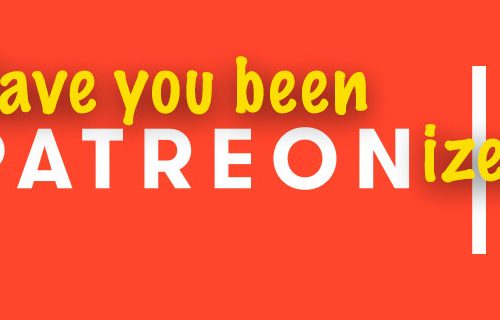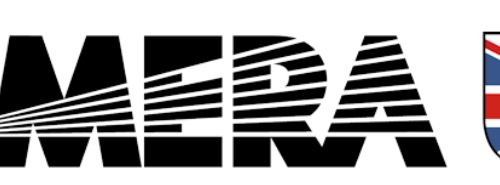This is a guest post by Max
Wednesday’s terrorist attack on the satirical French newspaper Charlie Hebdo has provoked mass grief and outrage across the world. Global leaders have been unanimous in their denunciation of the atrocity which claimed twelves lives including those of eight Charlie Hebdo journalists. In France, tens of thousands have gathered in public squares to pay their respects and protest in defence of free speech.
Some, however, have insisted that, even amid the carnage, it is essential to adopt a more critical approach to Charlie Hebdo’s legacy and to contextualise the violence within broader cultural and geopolitical concerns. One of the most outspoken voices calling into question the collective response to the attack has been Dr. Diana Seymour, a former senior member of the Workers’ Liberation Front and frequent contributor to publications including Counterpunch, The Guardian, Jacobin, and The New York Times. To find out more about her views on the Charlie Hebdo massacre, we decided to pay her a visit at the Minerva Centre for Applied Gender and Diversity Studies at North Midlands University where she currently holds a visiting fellowship while working on a book about the cultural history of clitoridectomy.
Harry’s Place: Dr. Seymour, are you worried that the Charlie Hebdo attack risks having a chilling effect on journalism and free expression in general?
Diana Seymour: Let me just start by saying that I condemn these horrific attacks unreservedly and that I have nothing but sympathy for the family and friends of the victims. Violence is always a crude and reductive form of expression which I personally have no time for whatsoever. That simply must be the first response of any conscientious individual in the face of this appalling tragedy. As for the question of what you call a “chilling effect”, I think we have an obligation as writers and thinkers to act responsibly when confronting the acutely sensitive area of people’s deeply-held spiritual beliefs. It’s all very well to start quoting Voltaire about the importance of defending so-called “freedom of speech” but the world has evolved a great deal since the 18th century – our very notions of who we are, of freedom, and even of speech itself have altered dramatically – and we simply must adapt our conceptual framework to take account of those shifts. I mean, as anyone who’s read Adorno and Horkheimer knows, these so-called Enlightenment ideas led directly to the Holocaust. In this context, I find the terminology “chilling effect” itself to be extremely problematic given its origins within the highly gendered and segregated environment of mid-20th century American jurisprudence.
HP: Which terminology would you prefer to use?
DS: I think the appropriate terminology will begin to emerge the more we try to work through these issues in an inclusive and non-discriminatory way. The problem with Charlie Hebdo is that its journalists were clearly immersed in the out-dated and hostile discourse of anti-clerical satire which, while it may on occasion have been suitable in the 18th and 19th centuries, is radically inappropriate in a multicultural space at the beginning of the 21st century. Today such a discourse is simply bound to come across as profoundly antagonistic – particularly from the point of view of vulnerable minorities and other marginalised groups. A lot of this clearly has to do with the lack of diversity among the people working there. I mean, do you realise that only one of the dead journalists self-identified as being of female gender? And among those self-identifying as being of male gender, only one was an Arab, and he, as a copy editor, had clearly been confined to a subaltern position. The rest were all old white guys. Does that sound like a healthy or sufficiently diverse working environment to you? And is it any wonder Charlie Hebdo had become a byword for hate speech directed against women and ethnic and religious minorities?
HP: Surely though the paper had a proud record of defending immigrants, gay rights, and other progressive causes?
DS: If you say so. But, to tell you the truth, my French is a little rusty so I’m just working from the old covers and drawings I find on the internet and there is nothing in the least progressive about what I see. In every case, these so-called illustrators were simply recycling the crudest of essentialisms – drawing Muslims with beards, Jews with ringlets, and Christians with crucifixes. Such reductive caricatures are the very definition of racism. And if you don’t agree with me on that one, you really need to inform yourself by reading Edward Said’s Orientalism.
HP: But didn’t Said defend Salman Rushdie’s right to make fun of Islam in The Satanic Verses? Maybe there’s a parallel here…
DS: I don’t know anything about what Said may or may not have said. That’s not the issue here anyway. The important thing is the text and our unique interaction with its semantic multiplicity. And my reading of Orientalism is clear on this point: when old white Frenchmen start drawing caricatures of the Prophet Mohammad that are purposively disrespectful to the oppressed Muslim community, it’s an objectively racist statement. The Muslims are the subalterns here. When an agent of the dominant discourse assaults their belief system, there is massive symbolic violence involved. I don’t see how there could be any doubt about that.
HP: Are you suggesting there’s some moral equivalence between what you call the symbolic violence of the cartoons and the physical violence of the attack on Charlie Hebdo?
DS: Look, let me reiterate that nothing could possibly justify killing people like this. And remember that two of the dead were, as Arabs, themselves in a subaltern position. That’s what happens in a context of absolute cultural oppression – subalterns end up fighting other subalterns which only serves to reinforce the grip of the dominant discourse. Everyone is a victim here. I actually wrote about just this topic in my doctoral thesis on late 20th-century Bangladeshi infomercials. But it is essential that we recognise the scale of the symbolic violence that was confronting the troubled young men who did this (not to mention the ongoing repercussions of the Algerian War and indeed of French neo-colonialism in the Sahel today). Contemporary France is an extremely inhospitable environment for practising Muslims who are confronted with institutional racism on a daily basis – notably in the form of arbitrary and invasive restrictions on the religious symbols they may wear. Of course all this is dressed up in the rhetoric of so-called “republican values”. But what does “liberty” mean to a young Muslim girl who’s not allowed wear a headscarf to school? Or “equality” to those who are denied access to municipal swimming pools because they are culturally unprepared to participate in a non-gendered environment? As for “fraternity” – no-one would deny that’s an inherently gendered concept. Just look at the Delacroix painting in which liberty is portrayed as a half-naked woman. Clearly that reflects a brutal fantasy of defilement…
HP: Wait a second, if you’re against “fraternity” because it’s gendered, then surely you shouldn’t have a problem with non-gendered swimming pools?
DS: What I think or what I feel is not the issue here. I have the benefit of having been raised in an inclusive and gender-neutral environment. I’m fully aware that not all people have had the same privilege. It’s a pure piece of cultural imperialism to try to impose the same one-size-fits-all hierarchy of values on those who have had contrasting life experiences. For the sake of diversity, we simply must respect and facilitate the wishes of those Muslim men and women who are unprepared to bathe together. Who are we judge – particularly given what we’ve done in Iraq over the past decade? Then there’s the Israeli-Palestinian conflict…
HP: And what does all this have to do with Charlie Hebdo?
DS: Charlie Hebdo is quite simply the most egregious example I have ever encountered of Western cultural hegemony masquerading as a vehicle for resistance and dissent. There is no better illustration of Foucault’s theory about how the dominant discourse appropriates formerly subversive discourses to serve its own ends. No wonder they were losing readers! Once again, let me point out that I have nothing but sympathy for the friends and families of those who have been killed. But it would be dishonest for me to say that a part of me is not relieved to know that they will no longer be able to inflict their reign of symbolic terror on defenceless minorities. Maybe now that they’re gone, the French will be able to take stock and reflect on forms of speech and expression that are more tolerant of “difference”. And that’s a French word, right? Did you know that they never gave Derrida a permanent teaching job? That’s the problem with the whole country right there!
HP: Do you have any suggestions for specific changes the French could make?
DS: I think I read somewhere that in 19th-century France, you needed someone’s permission before publishing a caricature of them. In the current context, I think there’s a lot to be said for that kind of inclusivity. Now, you’ll have to excuse me but I’m late for a break-out session on deconstructing the mystique of clitoridectomy. It’s been a real pleasure sharing with you today.


